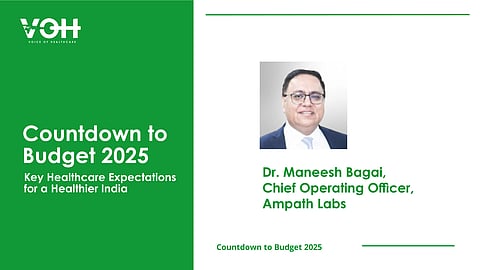

The Union Budget 2025 offers a pivotal opportunity to address critical gaps in the healthcare diagnostic landscape and create an ecosystem that prioritizes accessibility, affordability, and innovation. Diagnostics serve as the foundation for effective healthcare, and as an industry leader, we believe targeted initiatives are essential to ensure quality diagnostic services reach every corner of the country.
One key area of focus should be the promotion of decentralized diagnostic models. By supporting smaller, localized diagnostic centers and enabling sample collection networks in Tier 2, Tier 3, and rural areas, the government can significantly reduce turnaround times and improve healthcare access for underserved populations. Allocating funds to develop last-mile logistics infrastructure for sample transport and ensuring cold chain integrity can further strengthen these efforts.
Additionally, fostering a strong network of advanced testing laboratories through public-private partnerships can expand the availability of specialized tests, such as high-precision genetic testing, infectious disease diagnostics, and preventive screenings. These partnerships can help lower costs, ensuring affordability for patients while improving early detection rates.
Data integration and interoperability should be a priority to improve the efficiency of diagnostic services. Investments in a unified healthcare data framework will allow diagnostic providers to seamlessly share patient reports with clinicians across regions, leading to faster clinical decision-making and improved care coordination. National diagnostic databases can also drive public health initiatives through better disease surveillance and epidemiological research.
From a workforce perspective, it is critical to address the shortage of trained professionals in diagnostics. Specialized training programs for lab technicians, pathologists, and radiologists, combined with government incentives for employment in remote areas, can help build a robust talent pipeline to meet the increasing demand for diagnostic services.
Taxation reforms specific to the diagnostic industry, such as reducing GST on diagnostic equipment, consumables, and services, can enhance affordability and encourage providers to invest in expanding their infrastructure and capabilities.
The Union Budget 2025 is an opportunity to recognize diagnostics as a critical pillar of healthcare and create a roadmap for a resilient and inclusive system. By focusing on decentralization, technology integration, workforce development, and affordability, the government can ensure diagnostics drive transformative change in India’s healthcare journey.